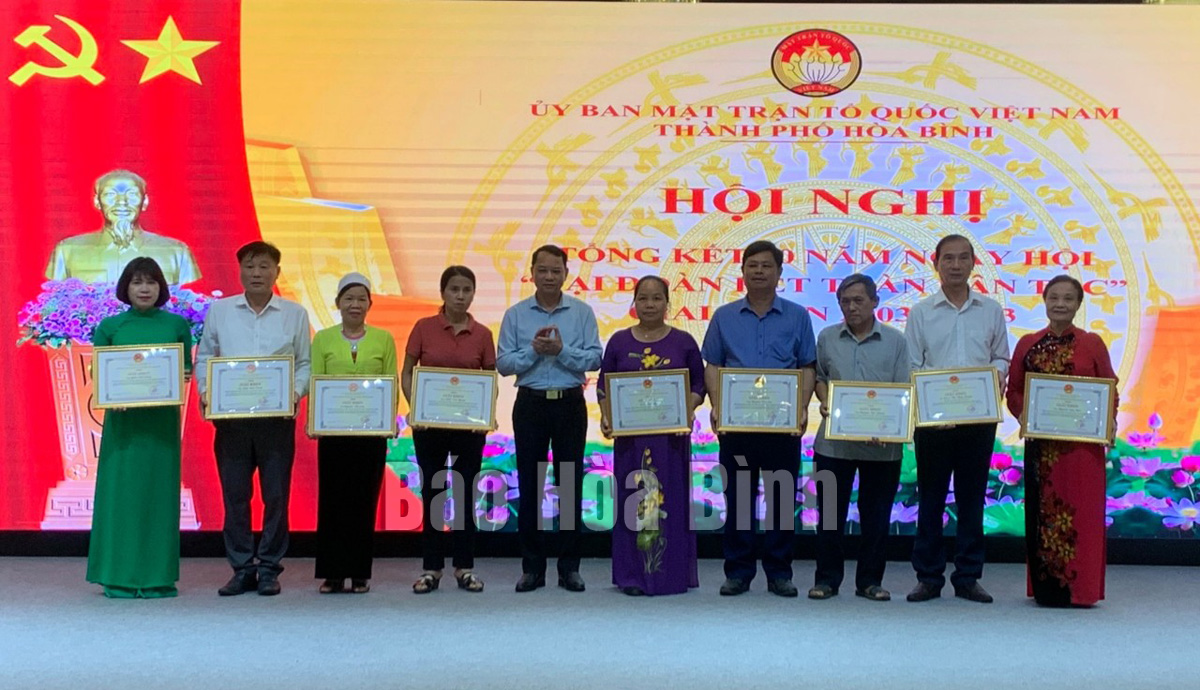



Outstanding individuals and collectives who have excellent contributions to the city’s socio-economic development over the past two decades were awarded at the event.
Several activities were held in all local residential areas to review the glorious tradition of the Vietnam Fatherland Front, assess the implementation of patriotic emulation campaigns and movements, especially the campaign "All people unite to build new-style rural areas and civilised urban", and praise outstanding collectives and individuals.
Besides, many meaningful works to support the poor also took place. On the occasion, 84 great solidarity houses were presented to impoverished households, thousands of labourers and farmers received support from the locality, more than 1,500 collectives and 2,600 individuals who have made many contributions to local residential area were also praised.
The conference also pointed out the bottlenecks and causes and drew experiences while giving directions, objectives, tasks and solutions to improve the quality of the festival in the new period.